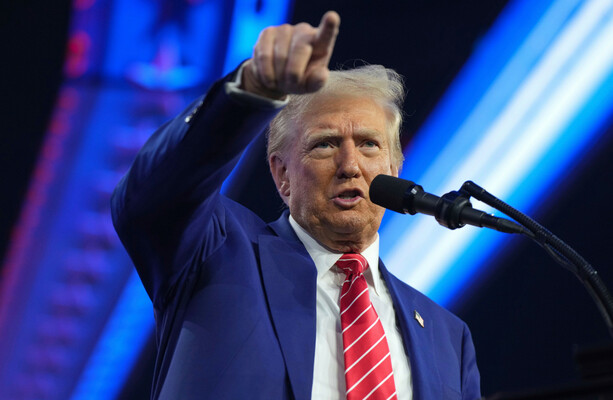Biden’s Clemency Decision Ignites Political Fury
President Joe Biden’s recent commutation of sentences for 37 death row inmates has sparked a fierce political backlash, with prominent figures voicing strong disapproval. The move, lauded by some as a step towards criminal justice reform, has been met with sharp criticism from others who see it as a radical overreach of executive power.
former President Donald Trump has been particularly vocal in his condemnation. In a statement released earlier this week, trump expressed his outrage, stating, “‘Makes no sense’,” regarding the President’s decision. The statement highlights the deep partisan divide surrounding capital punishment and the use of presidential clemency.
The controversy extends beyond the immediate political fallout.Legal experts are weighing in on the implications of such a large-scale commutation, debating its constitutionality and its potential impact on future death penalty cases. the debate also touches upon broader questions of justice, fairness, and the role of the executive branch in the judicial process.
While the White House has defended the decision as a necessary step towards a more just and equitable criminal justice system, critics argue that it undermines the rule of law and disregards the victims and their families.The debate underscores the complex and deeply emotional issues surrounding capital punishment in the United States.
A Nation Divided: Death Penalty and Presidential Power
The commutation of thes sentences is not just a legal matter; it’s a deeply divisive social and political issue. The debate reflects differing views on the morality of the death penalty, the effectiveness of the justice system, and the appropriate limits of presidential power. The ongoing discussion will undoubtedly shape future policy debates and legal challenges related to capital punishment.
This event highlights the ongoing tension between the executive and judicial branches of government, a tension that is likely to continue playing out in the coming months and years. The long-term consequences of President Biden’s decision remain to be seen, but its immediate impact is undeniable: a nation deeply divided on the issue of capital punishment and the limits of presidential authority.
Trump Condemns Biden’s Approach to Capital Punishment
former President Donald Trump has publicly criticized President Biden’s handling of federal death penalty cases, voicing his staunch support for capital punishment for specific violent crimes. The statement marks another point of contention between the two political figures, highlighting their differing views on a deeply divisive issue within the American justice system.
Trump’s criticism centers on what he perceives as leniency in the application of the death penalty. He explicitly stated his belief that capital punishment should be reserved for “rapists, murderers, and monsters.” This strong stance underscores his unwavering commitment to a tough-on-crime approach, a position that has been a hallmark of his political career.
The former president’s comments come amidst ongoing debates surrounding the morality and effectiveness of capital punishment in the United States. While some argue it serves as a just retribution for heinous crimes and a deterrent to future violence,others cite concerns about wrongful convictions and the inherent irreversibility of the death penalty. The issue remains deeply polarizing, with strong opinions held on both sides.
President Biden, while having previously expressed support for capital punishment, has overseen a notable decrease in federal executions during his presidency. This shift in policy reflects a broader national conversation about the ethics and practicality of the death penalty, with several states actively considering abolishing or significantly reforming their capital punishment laws. The contrast between Biden’s approach and Trump’s unwavering support highlights the evolving landscape of this complex issue.
Trump’s vocal opposition to Biden’s approach is likely to further fuel the ongoing debate surrounding capital punishment in the U.S. His statement serves as a reminder of the deep divisions within American society on this contentious issue, and is certain to spark further discussion and analysis in the coming days and weeks.
the differing stances of Trump and Biden on capital punishment underscore the significant ideological differences between the two political figures and their respective approaches to criminal justice. This latest exchange is likely to resonate with voters on both sides of the issue, shaping the political landscape and influencing future discussions on criminal justice reform.

This ongoing debate highlights the need for a nuanced and informed discussion about the death penalty in the United States,considering its ethical implications,its effectiveness as a deterrent,and the potential for irreversible errors in the justice system.


